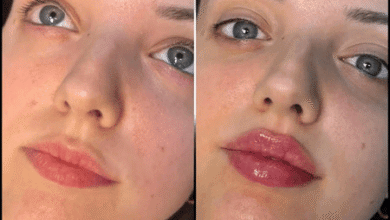Understanding the Body’s Response to Stress

Stress has deep roots in the chemistry of the body and is not only a mental sensation. When one goes through prolonged emotional stress or strain, the body releases stress hormones such as cortisol and adrenaline. The hormones are meant to be used in emergencies; however, their levels can upset the equilibrium in the body when they are run at a higher level. It can affect the sleep, digestion, mood, and even immunity. Although stress may never be avoided completely, some lifestyle-related choices may go a long way in keeping the physiological reaction to stress in check.
Spa treatments, long considered a form of relaxation, now have research-backed relevance in reducing stress-related hormonal activity. Multiple studies suggest that therapies involving touch, temperature, scent, and stillness may help reduce cortisol levels, activate the parasympathetic nervous system, and restore a sense of internal calm. For individuals seeking both physical relief and mental ease, visiting a Spa in Chennai offers more than momentary comfort; it may support actual hormonal rebalancing.
How Spa Treatments Influence Stress Hormones
The two main arms of the human nervous system are the parasympathetic (rest and digest) and the sympathetic (fight or flight), the system of the nervous system of a human being. Constant activation of the sympathetic nervous system is brought about by chronic stress. It appears that direct effect on such imbalance relates to spa treatments.
In particular, we all know that massage therapy stimulates the vagus nerve, which is necessary to relax physically. When the muscle tissues and fascia are pressed it reduces the tension of the muscles and promotes the blood flow. Such a therapeutic touch has also been proved to upsurge production of dopamine and serotonin which are neurochemicals that make emotions turn out positive about wellbeing, and reduce levels of cortisol.
In a similar vein, hydrotherapy treatments like steam rooms or hot stone baths serve to relax the circulatory system by slowly raising body temperature. The body responds to the warmth by being more relaxed. In the meantime, aromatherapy, which is utilized in spa treatments, can gently lead the mind toward calm by activating olfactory pathways connected to the brain’s emotional centers.
These physiological responses together lower stress hormone levels while increasing the body’s capacity to self-regulate. The result is not just subjective relaxation but measurable biochemical shifts.
A Therapeutic Escape Close to Home
Urban life often makes it difficult to find prolonged moments of stillness. For those living in South Chennai, finding a Spa in Velachery offers an accessible route to integrate stress-reducing rituals without needing to travel far. Local wellness centers in this area often include services such as reflexology, body scrubs, and deep tissue massage, all of which contribute to nervous system balance.
Moreover, the environment of a spa, the gentle music, low lighting, calming scents, and quiet tone creates an immersive setting where the brain can shift away from high-alert states. These sensory cues are not accidental. They are carefully designed to reinforce the parasympathetic response and bring about deep relaxation.
Researchers have also noted that repeated spa visits may have cumulative benefits. Just as stress builds in layers over time, so too can relaxation responses. Regular exposure to therapeutic treatments can train the body to access calm more efficiently. This makes spa visits not only restorative but also preventative in managing long-term stress.
Beyond Physical Relief: Emotional and Mental Recovery
Chronic stress often comes with a psychological cost, difficulty focusing, heightened irritability, and emotional fatigue. This mental overload is rarely resolved by mere rest. Spa therapies that include mindful touch and sensory engagement offer an important emotional reset.
Therapists trained in specific modalities understand how to pace the treatment, working with the rhythm of the breath and body. This process encourages clients to become more present, which can indirectly reduce the mental spiral often caused by stress. Treatments like aromatherapy facials or warm herbal compress massages are known for their grounding effects. These practices allow space for the body and mind to reconnect without pressure to perform or produce.
A quiet session in a Spa in Anna Nagar, for example, can become a structured pause from daily tasks. In this northern suburb of Chennai, wellness centers often cater to working professionals, homemakers, and elders each carrying their own forms of emotional weight. Offering more than surface-level relaxation, the right treatment can gently undo layers of tension accumulated over months or even years.
Le Bliss Spa: A Centered Approach to Wellness
One well-regarded name in Chennai’s wellness landscape is Le Bliss Spa, known for blending traditional techniques with a sensory-rich environment. Their treatments address both the physiological and psychological layers of stress, offering therapies that align with the body’s natural rhythms. For individuals looking to recalibrate their internal systems, such centers serve as a reminder that healing doesn’t have to be rushed; it can be felt gradually and deeply.
The Gentle Power of Taking a Break
Taking time for a spa visit might seem like a luxury, but in reality, it can be a necessary recalibration of the nervous system. Whether through touch, warmth, scent, or stillness, these therapies offer the body and mind an invitation to let go. Lowered cortisol levels, restored parasympathetic activity, and improved mood are not just pleasant side effects; they are measurable outcomes of allowing the body to shift from stress into recovery.
When stress feels relentless, the answer might not be to push through but to pause. And in that pause, through therapeutic spa treatments, the body begins to remember how to feel safe, calm, and restored.





